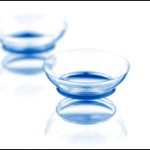Eye Exam and Vision Testing Basics

It’s easy to find people talking about getting a blood pressure check or for someone to get on a weight testing routine. But how many people do you know to talk about their eye or eye health?
The worst part is that many people don’t even count eye health as something to be worried about when it is, in fact, one of the most crucial parts of your body that should be taken care of.
So in today’s article, we’ll discuss the need for an eye exam – what it is, how it works, the types of exams and tests, and the terms you should get familiarized with. So without any more delay, jump right in!
What Is An Eye Exam?
Let’s start at the top: definitions. An eye exam is a test you take that helps the doctors evaluate where you are with your eye health.
Like every exam, you must be evaluated based on different bases to reach a conclusion. A comprehensive eye exam goes beyond routine eye exams, including eye check-ups and tests with an eye chart.
In a complete eye exam, the doctor will test your eye refraction, check for eye diseases, and even look at your retina and optic nerve to accurately measure visual acuity. In some cases, the doctor could even ask about your family history to know if there are any risk factors you fall into.
How Does An Eye Test Work

As in-depth as it might sound, comprehensive eye exams haven’t too many complications. All you have to do is come in to see the eye doctor according to your appointment, and they’d take care of the rest.
This should only take about 45 to an hour, 30 minutes – not too long, depending on what the doctor is looking for (or what the doctor has found).
What Do Eye Exams Evaluate?
In those few hours, the eye doctor will look at many things to reach a conclusion in four aspects.
Before speaking on those four aspects, the following are the things the doctor will evaluate during eye exams:
- Your medical history: This comprises your family’s medical history, as we have earlier mentioned, and the kind of medications you are already on
- Your visual acuity: Aside from your family history of eye health status, the doctor will also conduct a test involving the eye chart program, where you would test your 20/20 vision, one eye at a time, from different distances.
- Your prescription for corrective lenses: Next, the doctor will confirm whether or not you use correction lenses (glasses or contact lenses). You might have had a family doctor do this for you before. But instead of going by your former prescription, the eye specialist will check your eye again through an instrument called a phoropter to determine your eyeglass or contact lens prescription.
- Your pupil’s response to light: The doctor will also check your eye dilation speed to see if your pupil responds quickly. Slow or unresponsive pupil dilation situations are early signs of bigger eye problems.
- Your peripheral vision: Also known as side vision, the doctor will check to see that you have not lost your side vision. Problems in this aspect might be signs of glaucoma.
- Your ocular motility: To ensure everything is in order, the eye expert will examine your eye alignment and the strength of your eye muscles.
- Your eye pressure: The doctor will also check the pressure inside your eye during eye exams. The medical term for this is Intraocular Eye Pressure (IOP). During the test, the doctor may apply a puff of air to your eye to see if you have a high or low IOP.
- Your optic nerve: The doctor will check your eye nerve for any signs of vision problems or eye disease. To achieve this, a small dash of eye drops would be put into your eye, and the doctors will examine the nerve upon eye dilation.
- Your retina: In the same way that your optic nerve is being examined, the eye doctor will also check the retina for possible eye disorders.
- The front part of your eye: This examination looks for cataracts and scars or scratches on your cornea. To examine the front of the eye, your ophthalmologist will use a slit-lamp microscope. The eyelids, cornea, iris, and lens are all included.
Some other tests you might experience during a comprehensive eye exam include specialized imagery techniques, a test to check your visual field, one to scan your cornea’s surface, and so on.
The reason for all these tests is to check for your eye’s refractive errors, some changes in your vision, eye movement, eye muscles, blood vessels, and any cancer or tumors in the eye.
When Should I Get My Eyes Tested?
![]()
You might wonder, “With all those vision tests, how often am I supposed to go through that?” Not too often. You only need to get your eye tested once in two years.
If you have a follow-up appointment, you might have to come earlier than that. The same goes for if you are above the age of 65.
What Happens During an Eye Exam?
You’d check in first with the receptionist as soon as you come in for your eye exam. After this, you’d fill out your medical history and that of your family and then head to the pretest room.
In the pretest room, you’ll take all the eye exams mentioned above (including the one with the puff of air).
After the pretest, you’d be led to see the eye doctor and discuss possible prescriptions to wear contact lenses or glasses if needed.
The doctor will also check to see if you have any underlying eye disease. In general, the overall health of your eye will be checked.
Ultimately, you’d pay for your glasses (if you were asked to get one) and the exam.
How to Prepare for a Comprehensive Eye Exam
Before going to the doctor for an eye test, prepare the following things because they’d be needed:
- Your family medical history
- A list of the medications you are taking.
- Your current prescription.
- The list of any eye-related concerns or symptoms
- Your glasses or contact lens, if you have one (but don’t wear your contact lens to the exam).
- If applicable, your vision insurance information
Now, let’s review what you should and shouldn’t do before getting an eye checkup. Sleep well before your test to avoid an eye strain that could alter your vision test.
Clear your schedule because, as you can already tell, the eye exams will cause your eye to feel blurry, tired, and less effective than normal. Stay hydrated so that your eye does not dry out during the tests.
Different Kinds of Eye Exams

There are two types of exams you can be put through: the comprehensive eye exam and the routine eye exam. Let’s look at the difference between the two.
Comprehensive Eye Exam vs. Routine Eye Exam
The comprehensive eye exam covers all that we have been talking about. It is advanced, complete, and extreme. A routine test is different.
It covers glaucoma (or “air puff” test), side vision exam, color sensitivity test, and cover test. These will be performed to establish how well your eyes operate together.
What Tests Should I Expect During an Eye Exam?
The following are the other tests to expect during an eye exam:
Visual Acuity Test
This is the test with the eye charts, as explained earlier. You must sit far from the chart, cover one of your eyes, and then read letters. This test tells if you have a common vision problem or not.
Automatic Refraction Test
Here, the doctor will check your eye’s surface refraction to know if you need corrective lenses. After this test, the doctor can tell which one of the lenses is for you (if needed).
Visual Field Test
This is the same test given for side vision. Here, the doctor may ask you to cover one eye and then inform them of the number of fingers they’re holding up in your peripheral vision.
Keratometry Test
This test enables the eye doctor to check your corneal refractive power. It is also related to the automatic refraction test that was earlier mentioned.
Color Vision Test
Color blindness is a very subtle eye disease that could be an underlying cause for a more serious eye problem. During this test, the doctor checks if you see the colors within normal range or with slight blindness.
What Should I Expect After An Eye Examination?

After you have completed your eye tests, your eye will remain blurred and hypersensitive to light. This means you will not be able to drive and need to wear sunglasses to protect your eye.
When Should I Know The Results of The Eye Exam?
Your doctor should explain the results to you immediately after you have completed the exam. During this time, you would know if you are free to go, need more frequent exams, or in extreme cases, eye surgery.
What’s The Difference Between an Ophthalmologist, Optometrist and Optician?
An ophthalmologist is concerned with eye diseases and disorders, while an optometrist inspects the eyes for vision faults, eye injury, or ocular disorders. Optometrists also help with general health problems like diabetes, while an optician works with corrective lenses and related eye problems.
It is important to know the difference between the three to know where to find an eye health specialist.
How to Find an Eye Health Specialist?
If you have a family doctor, ask them for any eye doctor they can recommend. You can also ask your friends and family for a referral. Another thing you can do is to visit a nearby hospital and ask for the optometry department and their doctors. If you have health insurance, ask your insurance company for a great eye doctor.
Check our contact lenses offer, no prescription required:
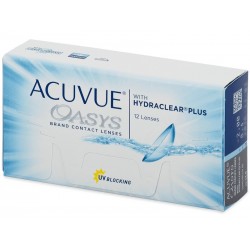
Acuvue Oasys 12 contact lenses
Order ACUVUE OASYS 12 contact lenses without a prescription verification
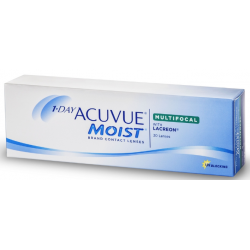
1-DAY ACUVUE® MOIST MULTIFOCAL
Order 1-DAY ACUVUE® MOIST MULTIFOCAL without prescription 1-DAY ACUVUE® MOIST MULTIFOCAL contact lens is a new one-day cont...
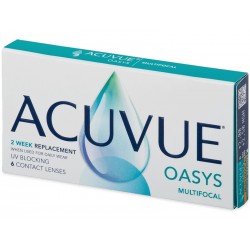
Acuvue Oasys Multifocal 6 pack contact lenses
Struggling with presbyopia, making reading difficult? Our two-week ACUVUE® OASYS MULTIFOCAL contact lenses are designed for ...
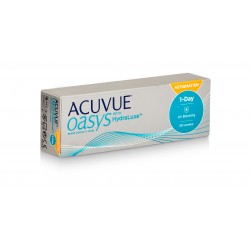
ACUVUE® OASYS 1-DAY for ASTIGMATISM 30 contact lenses
ACUVUE® OASYS 1-Day for ASTIGMATISM are advanced, one-day use contact lenses designed for those with astigmatism. They ensur...
Read also:




